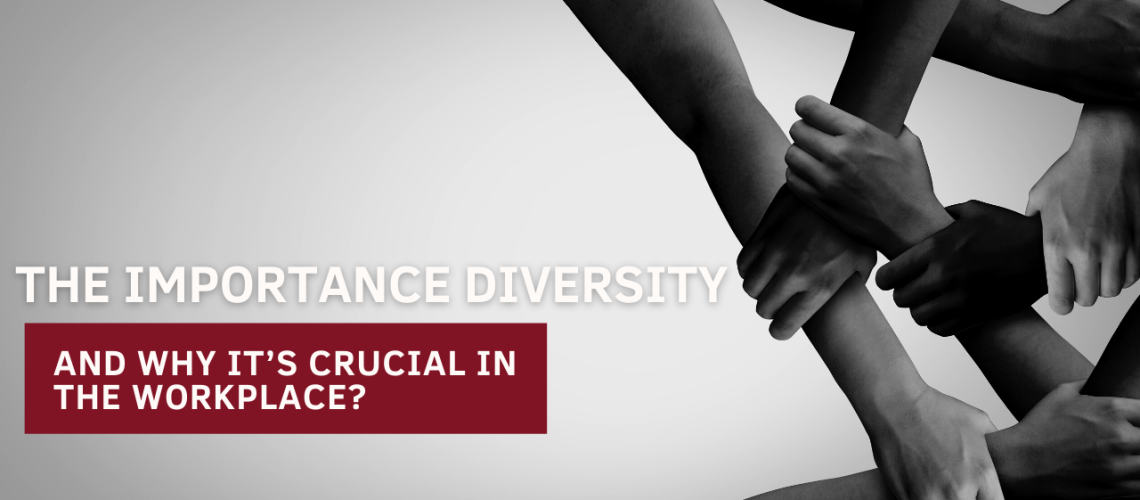
Diversity is increasingly becoming a cornerstone of the modern workplace. Organizations are recognizing the value of having different perspectives and experiences in their workforce, and employers are striving to create an inclusive culture across departments and job titles. But why is it important? And why should companies prioritize diversity? In this blog post, we’ll explore the importance of diversity in the workplace, as well as some of the ways that businesses can promote an inclusive environment for all employees. Let’s dive in!
What Is Workplace Diversity?
Workplace diversity is the inclusion of people of different backgrounds, experiences, and perspectives within a workplace. Diversity can include factors such as race, ethnicity, gender, sexual orientation, disability, and age.
The benefits of workplace diversity are numerous. A diverse workforce brings a variety of skills, perspectives, and ideas to the table which can make businesses more innovative and better able to meet the needs of their customers. In addition, a workplace that values diversity is more likely to attract and retain top talent.
Creating a workplace diversity plan starts with understanding the demographics of your workforce and setting goals for increasing diversity. Once you have a plan in place, it’s important to put policies and practices into place that support your goals. This might include things like implementing flexible work arrangements or offering unconscious bias training.
If you’re not sure where to start when it comes to creating a more diverse workplace, please reach out to us at Wide Impact, we offer resources and guidance on how to create an inclusive environment for all employees.
The 4 Types Of Workplace Diversity
Workplace diversity is a term used to describe the various ways in which people differ. These differences can include race, ethnicity, gender, sexual orientation, age, physical ability, religious beliefs, and political beliefs.
There are four main types of workplace diversity:
1. Demographic diversity: This type of workplace diversity refers to differences in personal characteristics such as age, gender, race, and ethnicity.
2. Organizational diversity: This type of workplace diversity refers to differences in the way organizations are structured and operated. For example, some organizations may be more hierarchical than others.
3. Functional diversity: This type of workplace diversity refers to differences in the way people perform their jobs. For example, some people may be better at problem-solving than others.
4. Cultural diversity: This type of workplace diversity refers to differences in the way people think and behave. For example, some cultures may place a greater emphasis on individualism than others.
Why Do We Need Diversity And Inclusion In The Workplace?
There are many reasons why diversity and inclusion are important in the workplace. For one, a diverse workforce is a more creative and innovative workforce. A Harvard Business Review study showed that,“The 2015 McKinsey report on 366 public companies found that those in the top quartile for ethnic and racial diversity in management were 35 percent more likely to have financial returns above their industry mean, and those in the top quartile for gender diversity were 15 percent more likely to have financial returns above their industry mean.
Diversity and inclusion are also important for attracting and retaining top talent. In today’s global economy, organizations need to be able to attract and retain the best talent from around the world. A diverse workforce helps to do this.
Organizations with a commitment to diversity and inclusion are also seen as being more fair and just. This is important for employee morale and motivation. Employees who feel like they work in a fair and just organization are more likely to be engaged and productive.
Finally, diversity and inclusion help organizations to better reflect their customer base. In order to be successful, organizations need to understand and cater to the needs of their customers. A diverse workforce can help organizations to better understand and serve their customer base.
Benefits Of Workplace Diversity
Workplace diversity is not only about having employees from different backgrounds. It’s also about fostering an environment where everyone feels comfortable being themselves and respected for their individual skills, experiences and perspectives.
When employees feel like they can bring their whole selves to work, they’re more engaged and productive. And when companies embrace workplace diversity, they reap the benefits of a more innovative and creative workforce.
Here are just a few of the many benefits of workplace diversity:
1. Increased Creativity And Innovation: When you have a team of people with different backgrounds and perspectives, you’re bound to come up with more creative solutions to problems. That’s because each person brings a unique perspective to the table that can help challenge assumptions and spark new ideas.
2. Improved Performance: Companies with diverse workplaces tend to outperform their competitors. That’s because a diverse workforce brings a variety of skills and talents to the table that can help your business succeed. Additionally, employees who feel like they can be themselves at work are more engaged and productive.
3. Greater Customer Satisfaction: Workplace diversity also leads to greater customer satisfaction. That’s because customers want to see themselves represented in the businesses they patronize. When they don’t feel like they see themselves reflected in your company, they may take their business elsewhere.
4. Improved Employee Retention: Diverse workplaces also tend to have lower turnover rates
7 Ways To Promote Diversify Your Workplace
If you want to create a more diverse workplace, there are a few things you can do to promote diversity. Here are seven ways to diversify your workplace:
1. Encourage employees to be open about their backgrounds and experiences.
2. Make an effort to hire a more diverse range of employees.
3. Offer training and development opportunities that focus on diversity and inclusion.
4. Create employee resource groups or networks for employees from underrepresented groups.
5. Promote flexible working arrangements to allow for a more diverse range of employees.
6. Implement policies and procedures that are fair and inclusive of all employees.
7. Encourage open dialogue about diversity and inclusion in the workplace
Conclusion
Today’s businesses are built on a foundation of collaboration and communication. Without the support of other workers, companies would be unable to reach their goals and objectives. That’s why it’s vital that businesses consider diversity when recruiting new employees. A rainbow of different perspectives will lead to better ideas and more innovative thinking, ultimately increasing profits.
If you’re not convinced of the importance of diversity in the workplace, consider this: businesses with a diverse workforce are 35% more likely to have financial returns above their industry median. That’s just one of the many reasons why diversity is crucial in the workplace.
A diverse workforce brings a variety of perspectives and skills to the table, which can make your business more innovative, creative, and successful. It can also help you better understand and serve your customer base. And when employees feel like they can be themselves at work, they’re more engaged and productive.
Diversity is not only important for businesses, it’s also critical for our society as a whole. By promoting diversity in the workplace, we can help build a fairer, more equitable world for everyone.
The Importance Diversity, And Why It’s Crucial In The Workplace?
By Dr. Salam Slim Saad
The Training Manager of Wide Impact and a Visiting Professor. An executive Consultant, speaker & trainer professional with over 25 years of experience, Dr. Saad has been speaking, writing and facilitating workshops about professionalism, leadership, soft skills and corporate civility for over a decade.


